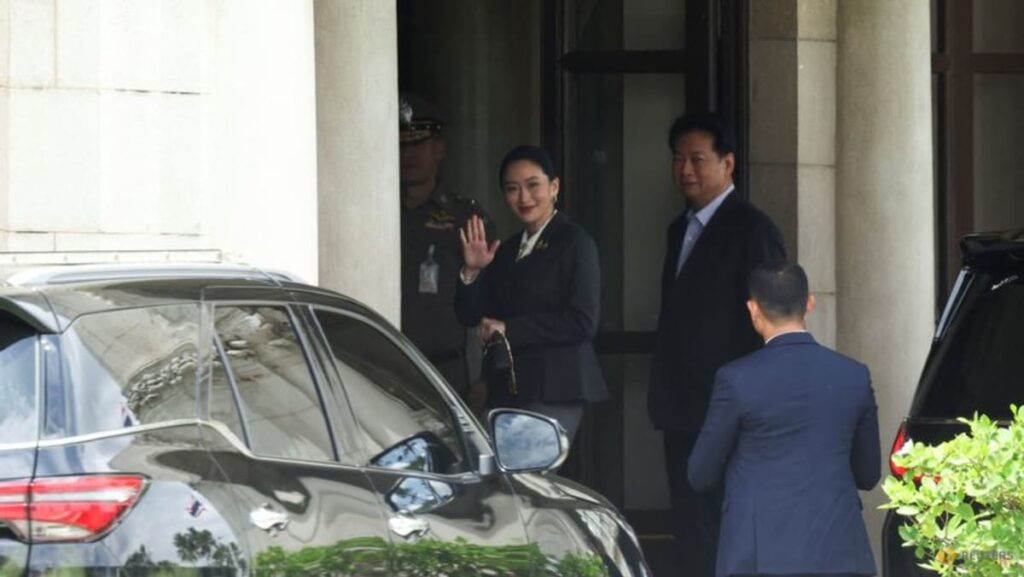UNCERTAINTY AHEAD
She is the fifth prime minister in 17 years to be removed by the Constitutional Court, underlining its central role in an intractable power struggle between the elected governments of the Shinawatra clan and a nexus of powerful conservatives and royalist generals with far-reaching influence.
The focus will next shift to who will replace Paetongtarn, with Thaksin expected to be at the heart of a flurry of horse-trading between parties and other power brokers to try to keep Pheu Thai in charge of the coalition.
Deputy Prime Minister Phumtham Wechayachai and the current Cabinet will oversee the government in a caretaker capacity until a new prime minister is elected by the house, with no time limit on when that must take place.
There are five people eligible to become prime minister, with only one from Pheu Thai, 77-year-old Chaikasem Nitisiri, a former attorney-general with limited Cabinet experience, who has maintained a low profile in politics.
Others include former prime minister Prayut Chan-o-cha, who has retired from politics and led a military coup against the last Pheu Thai government in 2014, and Anutin Charnvirakul, a deputy prime minister before he withdrew his party from Paetongtarn’s coalition over the leaked phone call.
The ruling thrusts Thailand into more political uncertainty at a time of simmering public unease over stalled reforms and a stuttering economy expected by the central bank to grow just 2.3 per cent this year.
Any Pheu Thai administration would be a coalition likely to have only a slender majority and could face frequent parliamentary challenges from an opposition with huge public support that is pushing for an early election.
“Appointing a new prime minister … will be difficult and may take considerable time,” said Stithorn Thananithichot, a political scientist at Chulalongkorn University.
“It’s not easy for all parties to align their interests,” he said. “Pheu Thai will be at a disadvantage.”
Read the full article here
